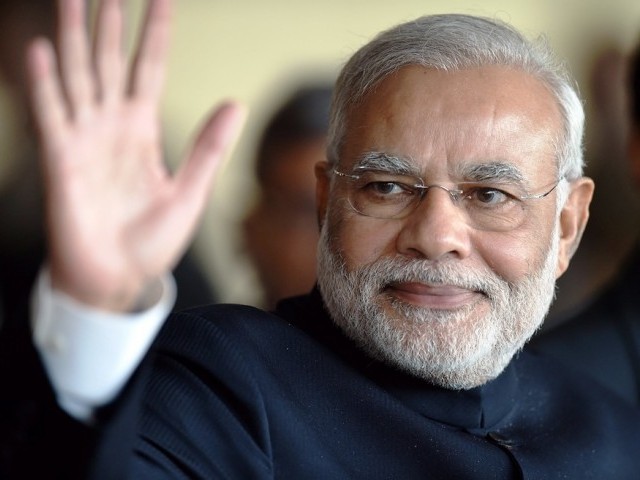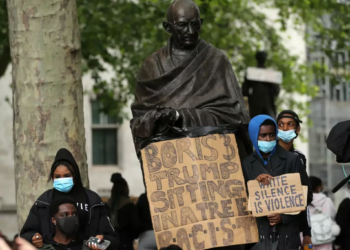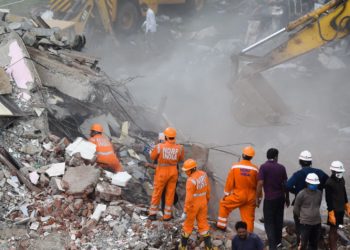Last week witnessed unprecedented scenes of protest across India as the nation revolts against a new act that amends the country’s citizenship laws. Hundreds of thousands of activists spilled out on the streets, protesting the amendment. They argue the new citizenship law violates India’s secular constitution and discriminates against Muslims. Within a week, the police killed 25 protestors, while several thousands of others were arrested.
Under the provisions of the amendment, Hindus, Buddhists, Jains, Christians, Sikhs, and Zoroastrians from India’s Muslim-majority neighbors Afghanistan, Pakistan, and Bangladesh will find their applications for citizenship fast-tracked.
By explicitly omitting Muslims, Jews, Bahais, and atheists, the Citizenship Amendment Act (CAA) introduces a religious filter that strikes at the heart of the secular principles enshrined in the constitution.
The right-wing Hindu nationalist Bharatiya Janata Party (BJP), which commands a crushing majority in India’s parliament, rammed the amendment through with the support of key allies against a hopelessly outnumbered and outmaneuvered opposition on December 12.
Proving Citizenship
Minister of Home Affairs Amit Shah promised parliament as well as audiences during political rallies and press conferences that the amendment will be followed by the enumeration of the controversial National Register of Citizens (NRC), adding to widespread anxiety.
Indians will now have to prove their citizenship by providing certain documents so they could be enlisted in the NRC. Failure to comply could result in detention as “illegal immigrant” and possibly deportation. It is here that the CAA kicks in. Muslims, not covered under the ambit of the CAA, could find themselves disenfranchised and stateless if they are unable to prove their citizenship.
Almost immediately after the passage of the CAA, the north-eastern state of Assam erupted. People here fear being swamped by Bangla-speaking migrants and being reduced to a minority in their own state.
Indeed, the amendment undermines the tenuous peace that has existed among the state’s myriad communities, throwing the region back to the instability of previous decades. Three days after the law passed in parliament, four people, including a minor, were killed in police firing.
Spreading Protests
The rest of India quickly followed suit, with protestors condemning the religious filter introduced by the act, which they correctly believe is targeted against Muslims.
Civil society activists called for civil disobedience against the act. Opposition parties governing states such as West Bengal have organized huge rallies. In an unprecedented move, Chief Minister of West Bengal Mamata Bannerjee has even called for an U.N.-mediated referendum to ascertain Indians’ opinion.
It is, however, the protests led by students that really took the country by storm. Initially spearheaded at a handful of campuses, the student protests have spread across at least 33 university campuses.
Some lol posters from today.#jantarmantar #CAAProtest pic.twitter.com/udt6zWzBUr
— Ikron David Luikham (@TheIkron) December 19, 2019
State repression has been swift and brutal. Colonial-era provisions, such as the draconian Section 144 that prohibits public assembly, have been put in place in several areas. Police laid siege to university campuses in Jamia Milia Islamia and Aligarh Muslim University, firing on unarmed students, ransacking libraries, and ordering students to evacuate their hostels.
Protestors as far afield as Gauhati in the east, Mengaluru in the south, and Rampur in the north have been killed. Reports filtering out of the northern state of Uttar Pradesh suggest systematic targeting of Muslim activists. The state government has declared it will wreak vengeance on the protestors. Students demanding the Chief Minister’s resignation have been detained.
United Nation
The massive protests appear to have taken the government by surprise. Quite possibly, they underestimated the extent to which Indians are yet able to overcome religious differences. The rallies have seen Hindus, Sikhs, Christians, and others stand in solidarity with Muslims.
Videos show Hindus and Sikhs forming a human chain to protect Muslims from stone-pelting police officers in Uttar Pradesh. Civil rights activist Harsh Mander, of Hindu-Sikh origin, declared that he would register as Muslim in any enumeration exercise. Sikh vendors have supplied endless cups of chai to Hindu and Muslim protestors free of charge.
Nothing inspires me more than expressions of interfaith solidarity. Here, Hindus and Sikhs form a human chain, so that that their Muslim brothers can pray during protests against India's anti-Muslim #CitizenshipAmendmentAct. pic.twitter.com/VdUbGccYed
— CJ Werleman (@cjwerleman) December 19, 2019
Hindu politicians, flaunting their Hindu identity, have been at the forefront of protests demanding the act’s abrogation. On Friday, Dalit activist Chandrashekhar Azad Ravan emerged from Delhi’s historic Jama Masjid after the mosque’s Friday prayers, vowing support to Muslims and thereby providing one of the protests’ most iconic moments.
No Compromises
Political pledges to couple the CAA with the NRC worry millions across India, beyond Muslims. Landless and homeless people, many of whom belong to communities oppressed as “low caste” or “untouchable,” fear they will be unable to provide the needed documents to prove their citizenship.
Internal migrants, who circulate between town and country in search of dignified employment, are justifiably anxious about their inability to produce the required documents. For many such people, the NRC poses a real risk of being rendered stateless; they will also be unable to fall back on the CAA for they will, naturally, not have a connection to Pakistan, Bangladesh, or Afghanistan.

On Sunday, Prime Minister Narendra Modi denied any plans for the CAA to be linked to the NRC or even that detention centers were being built. His denials are aimed at assuaging fears that the CAA is discriminatory.
The BJP’s allies are already indicating their rejection of the NRC, but such gestures might be too little too late. The protestors demand a total abrogation of the CAA. Moreover, the BJP will be unwilling to negotiate on this demand, for it was a key promise during elections earlier in the year. Any dilution in the CAA will risk alienating the BJP voter base.
Neither side seems willing to compromise. The BJP points to the massive legislative majority it commands and asks protestors to respect parliament. The protestors remind the BJP that it only won 38 percent of the popular vote (45 percent along with its allies).
The government may well clamp down further. One minister has already asked that police shoot protestors on sight. Such actions will only fuel further public resentment, drawing in more and more sections of the population.
Of course, the government may choose to divide protestors through a combination of carrots and sticks, perhaps even pitting them against one another in classic “divide-and-rule” style. Either way, Indians revolting against their government to protect their constitution await a long and bitter battle.
Disclaimer: The views and opinions expressed here are those of the author and do not necessarily reflect the editorial position of The Globe Post.





















